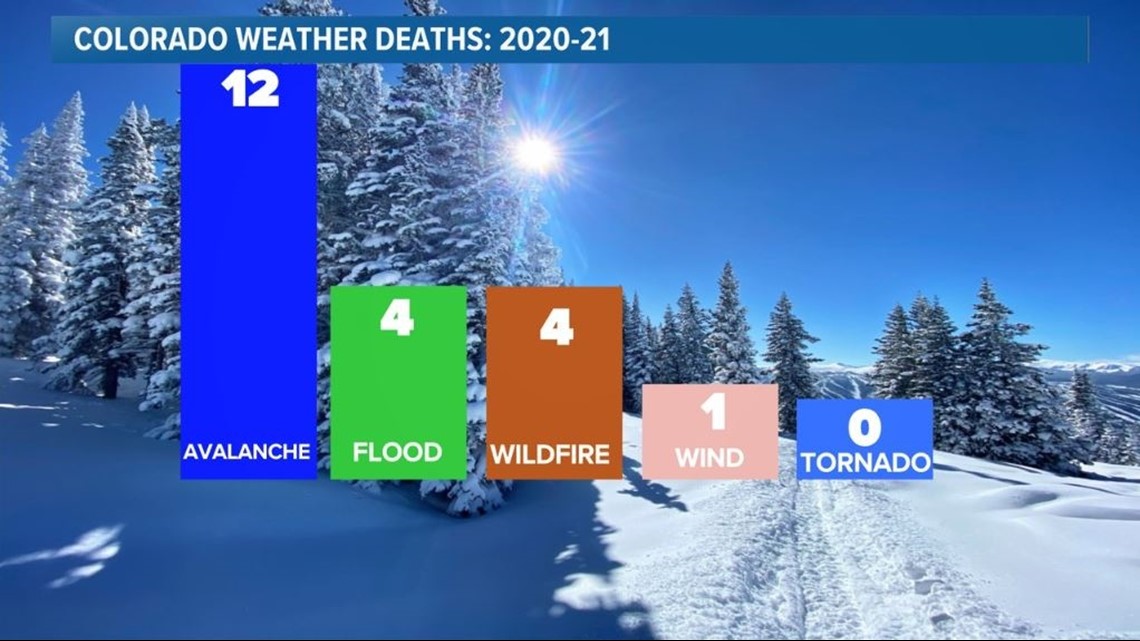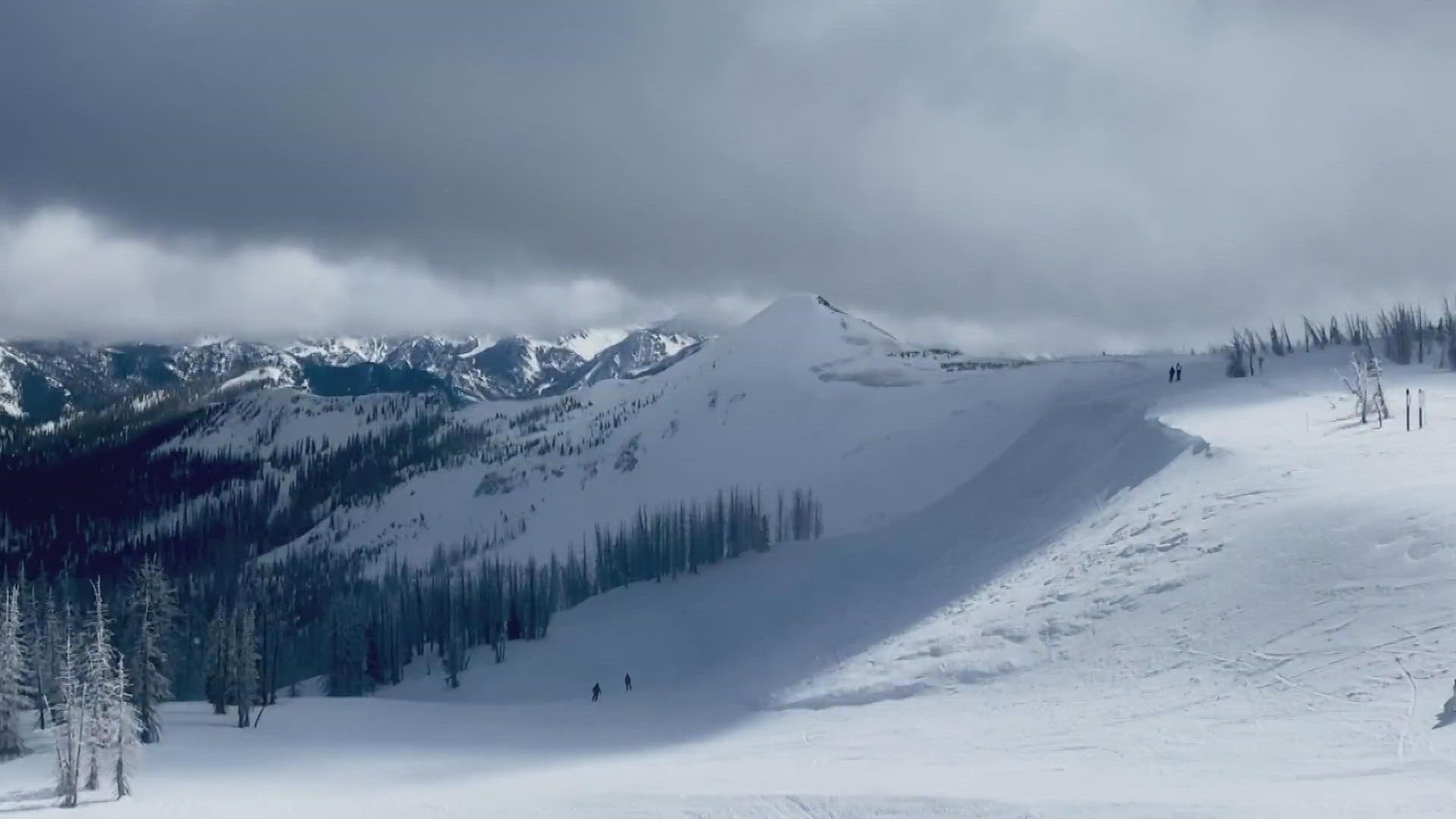COLORADO, USA — After another deadly weekend in the mountains, it feels like a good time to look at what the top weather and natural disaster killers are in Colorado.
Based on data from the National Oceanic and Atmospheric Administration (NOAA), and the Colorado Avalanche Information Center (CAIC), avalanches are the top natural disaster-related killer in the state.
While exact figures are hard to come by, Colorado leads the nation in avalanche-related fatalities on a per-state basis. About a fifth of U.S. avalanche deaths each year take place in Colorado, well more than any other state.
About six people per year die from avalanches in Colorado, based on an analysis of recent weather and natural disaster-related fatalities. That includes 12 avalanche-related fatalities during the unusually active 2020-21 winter season.


Flooding, wildfires, lightning, severe thunderstorms, extreme heat and extreme cold, tornadoes and wind all fell behind avalanches in terms of average annual deaths in Colorado. That's not to dismiss those other hazards; rather, it's to highlight the dangers that backcountry skiing, snowboarding and snowmobiling can present.
According to CAIC, an individual can trigger an avalanche on older, weak layers of snow. Wind-loaded northerly and east-facing slopes are the most dangerous. If you see cracking or collapsing in the snow, head to lower-angle slopes.
The National Avalanche Center offers the following tips on how to stay safe in avalanche terrain:
- Be aware of the weather forecast and the avalanche forecast for the area where you'll be. Those forecasts are available from CAIC and the National Avalanche Center.
- When going into an area where an avalanche might happen, carry an avalanche transceiver, probe and shovel, and know how to use them. Consider taking an inflatable avalanche airbag pack.
- Get training on how to identify avalanche terrain, travel safely and perform a rescue. The National Avalanche Center provides videos here and CAIC offers education programs.
SUGGESTED VIDEOS: Colorado Climate

